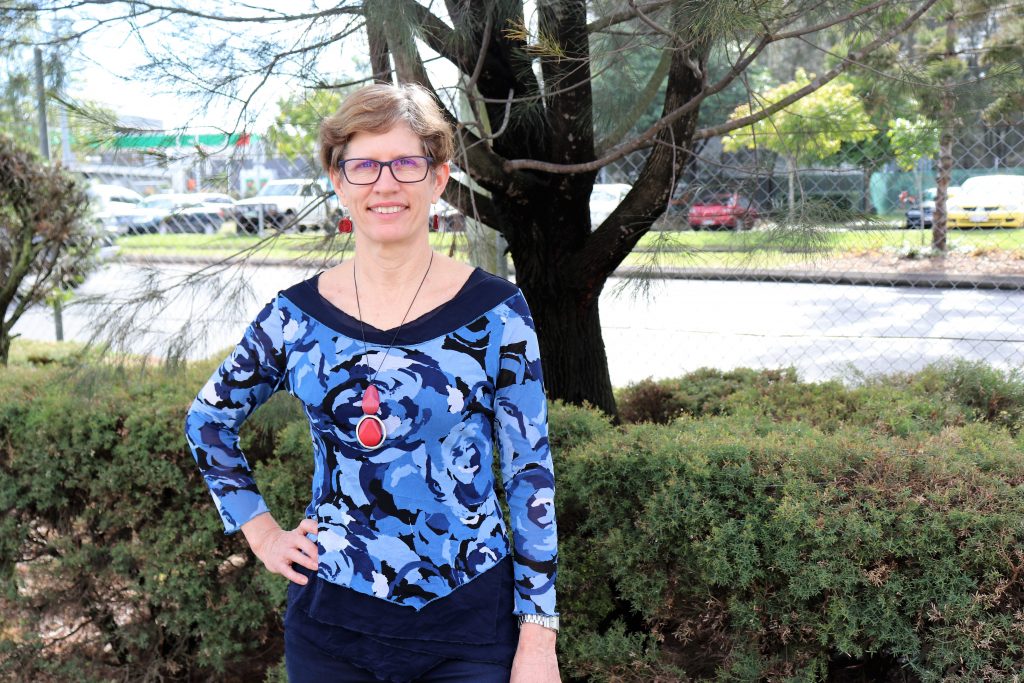In August 2018 the three-year funded BA14012 ‘Coordination of the Banana Industry R&D Panama TR4)’ project was completed. The purpose of this project was to coordinate and build knowledge and capacity within the Australian banana industry to manage and contain Panama Tropical Race 4 (TR4) fungal disease and ensure tangible outcomes are delivered to banana growers.
The project was delivered by the Australian Banana Growers’ Council and its Research and Development (R&D) Manager, Rosie Godwin.
Why was the project needed?
When TR4 was confirmed in the NQ production area in March 2015 – and the nature of the disease became apparent (that it cannot be eradicated and is easily spread) – it was vital to establish a containment management program and investigate ways to minimise its spread.
This made the role of R&D Manager critical to the industry.
It was also important that the banana industry had technical and R&D adoption expertise to provide advice to the banana industry R&D program and to work closely with Hort Innovation.
This project (BA14012) was primarily targeted at the banana-growing region of North Queensland where TR4 had been confirmed.
It also targeted the entire Australian banana industry in TR4 preparedness and through the provision of technical and R&D adoption expertise.
One of the greatest advantages the Australian Banana Industry has over overseas counterparts, is a well-coordinated effort in the area of R&D.
Fostering good collaborations, avoiding duplication of R&D effort and ensuring levy investments meet the needs of growers, are the main approaches employed by this project to achieve a well coordinated R&D Program.
Is the industry on track?
The containment management program in place for Panama TR4, has been successful in slowing the spread of TR4 in the banana industry.
It is still contained to just three farms in close proximity in the Tully Valley. This has been unheard of in most other countries where TR4 has quickly reached epidemic proportions.
The achievement of the containment program is a result of a coordinated response between multiple parties, effective extension of knowledge to industry and its stakeholders, adoption of new biosecurity practices, all of which are underpinned by relevant high quality science.
What did the project achieve?
BA14012 achieved many things for the banana industry particularly in facilitating the establishment, coordination and development of the industry’s major R&D investments.
This included the Fusarium wilt TR4 Research projects, Improved Plant Protection Program, the National Industry Development and Extension Program, and the transition of ‘QBAN’ (the banana industry’s clean planting material scheme), from Biosecurity Queensland (BQ) across to a third party accredited scheme in partnership with the Nursery and
Garden Industry Australia (NGIA).
The project was also key in the development of the new Banana Industry Strategic Investment plan 2017-2021, which represents the interests of the entire industry and is the blueprint for decision-making in levy investments.
Significant contributions were also made to the extension of R&D projects (particularly on TR4) to growers and other industry stakeholders.
For example, the development of a series of On-Farm Biosecurity resources for TR4 infested farms which assist farmers in their TR4 preparedness and, the development and delivery of the R&D scientific program at 2017 Banana Industry Congress which included a new session of ‘Science Speed Talks’.
The R&D Manager role provided input to the entire banana R&D program through membership of project reference groups and the Banana R&D Strategic Investment Advisory Panel (SIAP).
Considerable technical advice was provided by the R&D Manager to the banana industry on key pest and disease issues e.g. TR4, clean planting material, Bunchy Top Virus, Banana Freckle, leaf spot, plus chemical usage, reviews and permits.
Does project success rely on strong collaboration?
The R&D Manager role would not have been successful without effective collaboration and working relationships with the diverse stakeholders associated the project.
This included listening and talking with growers, federal and state government departments, researchers, service providers and industry groups. Gaining an understanding of the
needs of each group and the problems they face was the first step in assisting each group to find solutions that met the needs of industry.
WHAT’S NEXT FOR R&D PROJECT
The future of the Banana Industry R&D Coordination project is in safe hands, with Dr Rosie Godwin recently signing on to lead the initiative for another three years.
“There is no doubt there are some challenges facing the industry at the moment, but we’ve got world class researchers, scientists and innovative growers who are more than up to the task,” Dr Godwin said.
The project (BA17002) was identified as imperative due to low banana prices over the last three financial years and the threat of Panama TR4. The project will also consider challenges including other areas of biosecurity, fruit quality and improving profitability.
Dr Godwin will act as the central point of contact for industry R&D, while working in collaboration with Hort Innovation and other relevant parties.
Among the project outcomes are increased awareness of banana R&D projects and enhanced extension and communication of any new developments.
“I’m looking forward to continuing to work with growers and industry representatives to get the best outcomes for our industry,” Dr Godwin added.

